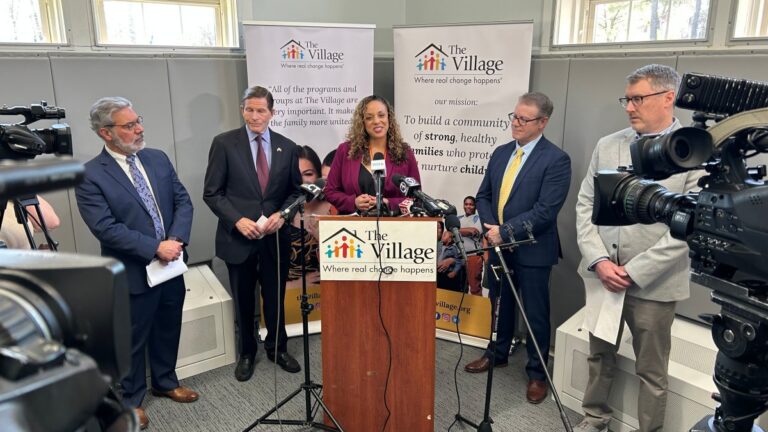Mental health advocates joined Sen. Richard Blumenthal in Hartford on Monday to announce legislation aimed at improving resources for child suicide prevention.
The Child Suicide Prevention and Lethal Means Safety Act was enacted in response to a new report from the Office of Child Advocates that finds child suicide rates are increasing and those affected are getting younger.
“We need to act. We are facing a perfect storm, almost an epidemic of child suicide,” Blumenthal said.
The bill aims to provide education, training, and research, as well as enforce red flag laws and safe storage of firearms.
“There is hope if we can prevent access to self-harm and give children a chance to fight and receive counseling before they become suicidal,” Blumenthal said.
He said the issue was hidden in plain sight and people wanted to hide from this painful topic, but it needed to be faced head-on.
”[It’s] “It’s more than just anxiety and a stomach ache,” he said.
Monday's press conference was held at the Village for Families and Children Inc. in Hartford. Experts spoke about suicide trends and how suicide is now the second leading cause of death for 10 to 24-year-olds.
“Suicide among young people aged 10 to 24 increased by 50% in 2018, and this has increased even more in 2020 during the pandemic,” said Dr. Layne Taylor, chief medical officer at The Villages. Ta. “It's pretty tough. You see it in the emergency room, you see it here, at every level of care. People who are getting out of control, like being extremely aggressive or having thoughts of suicide or depression.” The number of children coming to these places is increasing.”
Assistant Child Advocate Brendan Burke pointed to data from the Connecticut Department of Public Health for high school students.
“14% reported considering attempting suicide, and 6% had attempted suicide,” he said. “These numbers suggest that children are becoming younger, and the entire care system and mental health This suggests that continued efforts are necessary.
Dr. Taylor pointed to social media as a reason why children experience more anxiety and depression.
“Our kids aren’t playing, they’re watching,” she said. “The connections they form are expressed in unrealistic lives and appearances that cannot be achieved by a 12-year-old.”
Dr Laura Saunders, a child psychologist at the Institute of Living, said there were many factors to consider.
“Family stressors, financial stressors, social stressors, all the losses and changes,” she says.
Sanders said parents should pay attention to changes in their children, such as becoming more irritable, withdrawn from normally sociable children, or not enjoying things as much as they used to.
“It's difficult for parents. When you understand this and ask, kids just say, 'It's okay, it's okay,' when their words and actions clearly don't match.”
She said the biggest thing parents can do is have an open and honest conversation about suicidal thoughts.
“It's actually a myth that asking these questions directly will cement the idea in a child's head. In many cases, the idea already exists, and the fact that the parent is asking the question directly makes it more It's a sign that you're open to talking about it. “
If you or someone you know is in crisis, contact the Suicide and Crisis Lifeline by calling or texting 988 or chat with us on Live Chat. 988lifeline.org.You can also visit SpeakerOfSuicide.com/Resources for additional support.


